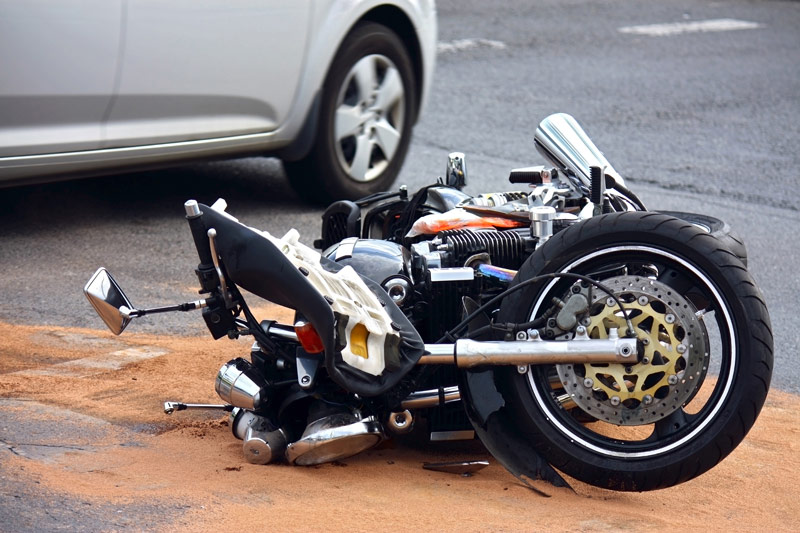The 10 Most Common Causes of Motorcycle Accidents
Motorcycle accidents can be deadly, since motorcycle riders are much more vulnerable than their car-driving counterparts. While it’s possible to take legal action or use insurance companies to get compensation for the damages in these situations, it’s much more preferable to avoid these accidents altogether. Understanding the common causes of motorcycle accidents can help you do this.

The Most Common Causes of Motorcycle Accidents
Motorcycle accidents could be caused by the motorcyclist, another driver, or some combination of the two. These are some of the most common causes:
- Speeding. Most motorcycles are designed to go fast, and it’s exhilarating to do so, but increasing your speed past the legal limit is extremely dangerous. At higher speeds, you have less time to react to changing circumstances around you, and you’ll have less control over the vehicle. Accordingly, you’ll be more likely to wipe out.
- Distracted driving. Anyone can be a distracted driver, but in some ways, it’s more likely to happen to car drivers. If you’re staring at something other than the road or using a mobile device, you could easily run into something or lose control of the motorcycle. If a driver is busy texting, eating, or talking, they might not see you, and run into you.
- Driving under the influence. Driving under the influence of alcohol or any impairing drugs can interfere with your reaction time, decrease your ability to judge distances, and disorient your senses. It’s a root cause of millions of accidents every year, and is embarrassingly easy to prevent. If you’re even a little intoxicated, stay off the road—even if you feel like you can make it home.
- Reckless lane changes. Part of the joy of riding motorcycles is the extra freedom and mobility you’ll get. You can move much more efficiently on a bike, and many riders use this to their advantage, swerving between lanes to get ahead of slow traffic or as a way to feel an adrenaline rush. However, reckless lane changes frequently cause accidents, since they’re prime opportunities to lose control of your bike—and absentminded drivers are more likely to hit you.
- Unsafe lane splitting. Lane splitting is riding between lanes of traffic on a bike, and it’s legal in many areas, with certain restrictions (but illegal in others). Lane splitting recklessly, like exceeding the speed limit or disregarding other drivers, is a recipe for disaster—and a root cause of many crashes.
- Unexpected stops. Motorcycles can accelerate quickly, but they have a bit more trouble stopping. If they ride too close to a vehicle in front of them with stronger stopping power, or if an unexpected obstacle lands in the road, they may struggle to stop in time. They may slam on the brakes and still hit whatever’s in front of them, or they may lose control and fly off the bike altogether.
- Unsafe road conditions. There are several conditions that can make the roads less safe. If you live in an area with bad winter weather, you might have to deal with snow and ice, which can make you lose traction or control. Heavy rain could make the roads slicker as well. You might also have to deal with construction or potholes, which could cause such an abrupt change in your velocity that it causes you to crash.
- Detection issues. Motorcycles are smaller than other vehicles, so it’s easy for them to fall into the blind spots of other drivers. This is why it’s important to stay at the edges of each lane, so you’re more visible to the drivers in front of you. If a driver doesn’t see you and they turn, change lanes, or stop unexpectedly, you could end up colliding with them.
- Mechanical failures. It’s important to keep your motorcycle well-maintained, and to take care of any mechanical issues while they’re small and easy to handle. Otherwise, a mechanical failure like bad brakes or faulty engine components could cause a collision where there otherwise wouldn’t be one. Not all these problems can be prevented, but most can.
- Inexperience. Riding a motorcycle is different than driving a car, and it takes time to learn how to handle a motorcycle properly. Unfortunately, many people get ambitious on this vehicle before they’re truly ready for it, and their inexperience causes them to make mistakes that result in crashes.
Increasing Your Chances of Survival
No matter how perfectly you ride, there’s still a chance you could be involved in a collision. Knowing that, it’s important to maximize your chances of survival by wearing a helmet, wearing long sleeves and long pants, and understanding what to do after a crash. Motorcycle riding is fun, but it’s also dangerous, so don’t take your safety lightly.